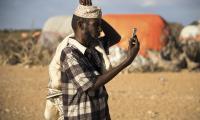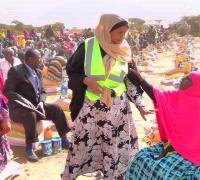Call for abstracts! Vernacular humanitarianisms in a global perspective. Kenya, 1-5 September 2024.

Recurrent drought in the Horn of Africa. Conflict in Ukraine and in Gaza. Emergency response rooms in Sudan. Earthquakes in Pakistan. Health emergencies in Bosnia. Economic collapse in Venezuela. Wildfires in Greece. Cyclones on Fiji. Covid-19 around the world.
In these and many more complex crises around the world, diaspora actors have assisted with emergency support in their erstwhile or ancestral homelands, and beyond. Being part of multi-directional and multi-sited networks of kin and compatriots, they are often among the first to know about emergencies affecting their families and wider communities. In response, they have built wells in drought-affected regions, supplied food and mattresses when homes have been washed away by flash floods, shared insights on Covid-19 medical prevention measures online, and organized fancy fundraising dinners to reconstruct schools and clinics destroyed by conflict. Emergency support may also (re)produce social or political divisions, however. Securitization measures and bureaucratic requirements may constrain transfer of funds as well as generate suspicion in settlement and recipient countries. And, while proponents highlight fast delivery to hard-to-reach areas, the formal international humanitarian system remains concerned about impartiality and accountability, sometimes resulting in mutual distrust.
This conference analyzes the multifariousness and ambivalence of vernacular humanitarianisms (Brkovic 2016; 2017) in a global perspective. Ranging from kinship associations, CSOs, youth groups, religious institutions, businesspeople and more, diaspora actors work across multiple spatial and temporal contexts, scales, and speeds, often in close collaboration with (trans)local partners. Their involvement can be understood as vernacular support systems, embedded in reciprocity, solidarity and religious practices, as spaces of recognition and care. But they can also be politicized and instrumentalized, sometimes involving form of social pressures, control and exclusion that can be taxing for individuals and families living in precarious circumstances in settlement countries. It thereby generates and reflects geometries of power where gender, generation and citizenship are among the axes of differentiation. Furthermore, perceptions of what constitutes care, crisis and appropriate support may vary and be subject of fierce contestation.
There are, hence, a range of questions to explore. Why, how and when do diaspora and other vernacular humanitarianisms emerge – and how do counterparts and recipients perceive it? Which infrastructures mediate it? What are the trajectories across time, space, generations, and individual lives? Which moral, political and religious registers and imaginaries are invoked and underpin vernacular humanitarianisms – and what contestations and divisions may it reflect or generate? What are the modes of collaboration and/or disengagement between diaspora humanitarian actors, local institutions, the formal humanitarian system and other actors? How does it challenge the workings of mainstream humanitarianism – if it does so at all? And how does our terminology and methodological framework shape our perspectives?
We invite papers that interrogate these and related perspectives on vernacular humanitarianisms, solidarity, non-state emergency assistance, given there is a link to the overall topic and questions. We especially encourage papers that engage with theoretical and methodological issues.
On a practical note
The conference marks the conclusion of the collaborative research program Diaspora Humanitarianism in Complex Crisis (D-Hum) that is a consortium between the Danish Institute for International Studies (DIIS); Institute for Development Studies (IDS), University of Nairobi; Rako Research and Communication Centre, Hargeisa; and Rift Valley Institute (RVI), Nairobi. Our ambition is to create fruitful grounds for theoretically rich and empirically grounded discussions on diaspora humanitarianism in a global perspective and to examine the opportunities and limitations of this term as an analytical framework. We wish to do so in good company with a small group of engaged researchers, with emphasis on academic rigor and curiosity.
The participants in the conference will consist of about 24 participants, including D-Hum team members and external participants from the African continent and beyond. We have just a few spots left and will select abstracts based on academic quality and relevance. Please note that participants will be expected to present new, original papers that are circulated in advance, as we are planning to publish a special issue with a renowned publisher.
The conference will run from September 1 in the evening (arrival and welcome) to September 5 in the morning (departure) and will take place in a beautiful venue in Kilifi outside Mombassa. We will ensure that there is plenty of time for discussing papers and socializing. Conference accommodation and travel costs in Kenya will be fully covered, with some opportunities for coverage of international travel costs as well.
Abstracts
Please submit a 200 word abstract as well as name, affiliation and contact details here.
Deadline for submission of abstracts: May 21, 2024.
Decision: May 29, 2024.
Deadline for circulation of papers: August 15, 2024.
For further enquiries about the call contact Nauja Kleist (nkl@diis.dk)
DIIS Experts



